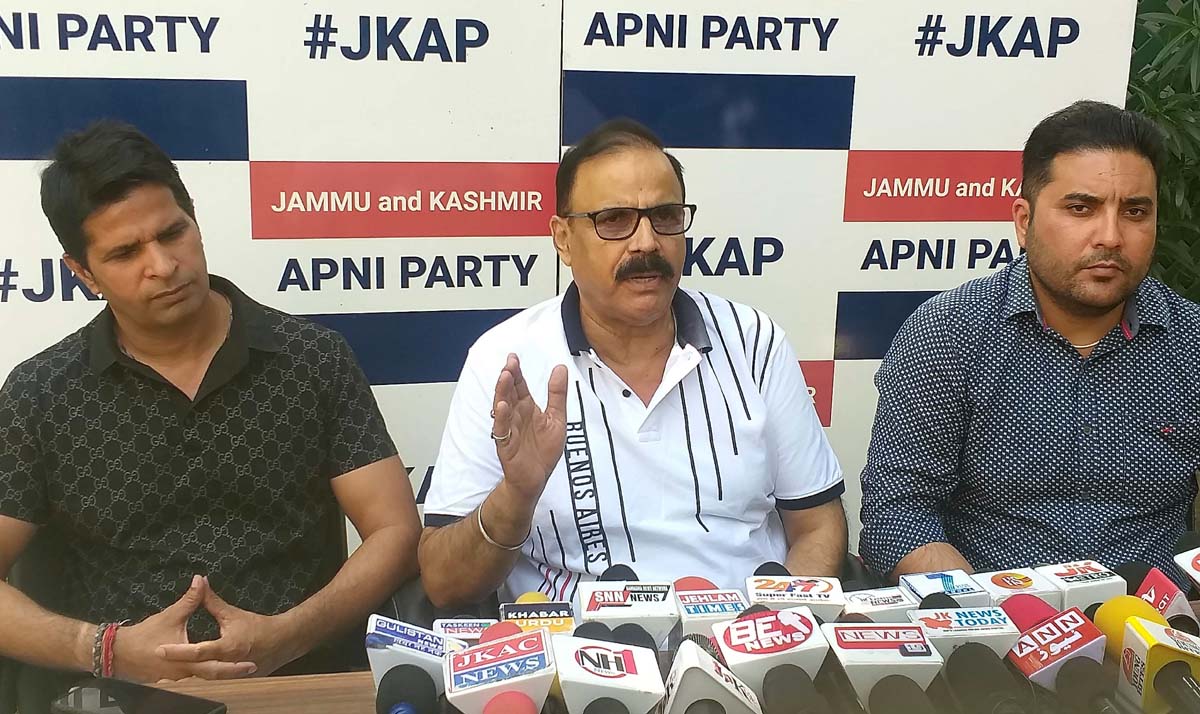Excelsior Correspondent
JAMMU, Apr 8: Condemning the mysterious fire incidents from the last several days, Apni Party’s Trade Union (APTU) president Ajaz Kazmi today demanded compensation and easy bank loan facility for the owners of burnt houseboats in Srinagar.
In a press conference which he addressed at Apni Party Office in Gandhi Nagar, Kazmi appealed the Government to give compensation to the house boat owners of Srinagar whose property worth crores was gutted in the mysterious fire incident. He was accompanied by provincial president, Raj Kumar Sharma and district president, Jammu Anirudh Vashist.
He also demanded that the fire incidents which are occurring from the last several days should be thoroughly investigated and the accused persons or reason behind these incidents should be exposed in public.
Kazmi said that the house boat owners have lost crores and their assets have been lost which they built for years after borrowing money from the banks. “The Government must save the tradition of Kashmir by providing easy bank loans to the owners so that they can rebuild the house boats,” he added.
Meanwhile, he also demanded that the regularization orders should be issued in favour of the 12000 daily wagers of PDD. He said that the Government should not have selectively assured regularization of all the daily wagers without discrimination. He also said that the Government should waive off the electricity bills of the Below Poverty Line (BPL) families in J&K.
Similarly, he also raised the issue of overcharging by the shops allegedly sponsored by the private schools in Jammu with regard to school uniform, shoes, books and notebooks. He demanded intervention of the Director School Education, Jammu and investigation as to why the parents are being pressurized to buy school uniforms, shoes and books from some of the specified shops although the cost of the same goods is much less in the open market.


